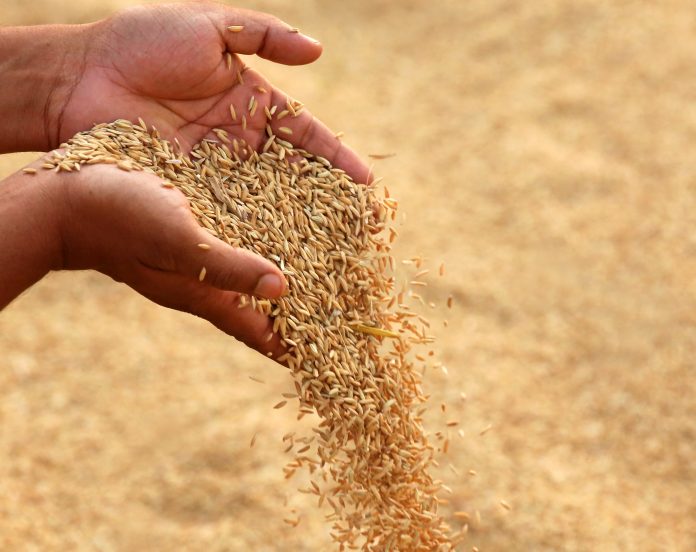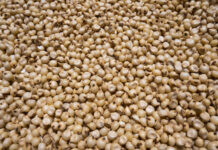
The food processing sector is one of the key drivers of the food and agriculture sector, which needs a bigger push, more investment and in-depth research and development (R&D) to take it to greater heights, suggest a new report and industry stakeholders.
According to the ‘Vikasit Bharat by 2047: Role of the Food Processing Sector’ report, the contribution of India’s food processing sector to the country’s gross value added (GVA) needs to quadruple to 7.2% from the existing just 1.8% if the nation aspires to become a developed country by 2047, the centenary year of India’s Independence.
The report by consultancy firm Grant Thornton Bharat says India’s food processing sector is one of the most substantial globally and serves as a crucial link between Indian farmers and domestic and international consumer markets. Future strategies, however, must be aligned to achieve the target of 10.4% CAGR by 2047.
GVA is a productivity metric that measures the contribution of a corporate subsidiary, company, or municipality to an economy. In other words, it is the measure of the value of goods and services produced in an area, industry or sector of an economy.
Small but rising strong
The food processing industry in India – the report released earlier this year says – is at a nascent stage, accounting for less than 10% of total food produced in India. The level of food processing in India is 4.5% for fruits, 2.7% for vegetables, 21.1% for milk, 34.2% for meat and 15.4% for fish, it says quoting studies.
From 2015 to 2022, the food processing sector grew substantially, averaging an annual growth rate of around 7.3%, compared to approximately 4.87% in the agriculture and allied sectors, at 2011–12 prices.

The sector has also emerged as a pivotal segment of the Indian economy, contributing significantly to the gross domestic product (GDP), employment, and investment. In 2020–21, the sector constituted 10.54% of gross value added in manufacturing and 11.57% of GVA in the agriculture sector, both at 2011–12 prices.
Within the registered factory sector, the food processing industry accounts for 12.38% of the total employment, engaging roughly 1.93 million individuals, the report said. “The primary sectors comprising the Indian food processing industry include grains, sugar, edible oils, beverages, fisheries, fruits, vegetables, and dairy products,” the report said.
The market size growth of the Indian food processing sector was US$590 billion in 2017, which rose to US$ 866 billion in 2022. It is estimated to soar to US$ 1,274 billion by the year 2027. There were 3,319 startups in the food processing sector in April 2023, of which 58% were from Tier 2 and 3 cities.
India’s agricultural and processed food exports have gone up to more than US$ 50 billion in 2022-23, accounting for 22.6% of the overall agri-food exports, the reports said quoting Union commerce ministry statistics.
Challenges and solutions
The report also identifies challenges such as food safety, sustainability and labor shortages. “India has a large agricultural sector but is fragmented and underdeveloped. This leads to problems such as a lack of storage facilities, poor transportation infrastructure and high wastage. Deficiencies in the supply chain infrastructure can lead to inadequate primary processing, storage, and distribution facilities,” it says.
Chirag Jain, partner, Grant Thornton Bharat, says the 3-I Model – Innovation through Technology, Infrastructure Development, and Investment Convergence – emerges as a strategic framework for the evolution of the food processing sector.
Digitalization and technology – particularly through IoT, AI, and blockchain – offer a pathway to efficiency and cost reduction. At the same time, robust infrastructure development, encompassing primary processing at the farm level and a well-integrated cold chain, is pivotal.
“As the government propels this vision forward through schemes such as the Production Linked Incentive Scheme for Food Processing Industry (PLISFPI) and others, the 3-I Model stands to revolutionize India’s food processing landscape,” Jain says.
Naveen Malpani, partner, Consumer Industry, Grant Thornton Bharat, said, “India’s food processing industry, no longer in its infancy, holds the potential for a transformation that reduces waste, adds value, and fuels economic growth. By 2047, the goal is to boost its GVA contribution and establish India as a global leader in processed food exports.”
The report says significant investment is needed in rural infrastructure such as grading and packing centers, storage facilities, transportation, and testing laboratories to aid the food processing industry. Increasing agricultural output without investing in processing facilities can harm the earnings of farmers and cause rural distress, it cautioned.
It lays stress on strong supply chains that connect farmers to processing and marketing as well as strengthening primary processing at the farm level, including sorting/grading, packaging and drying. An integrated cold chain can transform India’s rural economy, the report says.
Focus on R&D
Food processing was the focal point of a recent seminar where top stakeholders from the industry and government deliberated on the future and challenges.
Speaking at a recent FICCI scientific symposium on ‘Processed Foods for Purpose,’ Anita Praveen, secretary of the ministry of food processing, emphasized the importance of research and development (R&D) in propelling the Indian food processing sector to greater heights.
“The food processing sector has become one of the priority sectors for growth. We have achieved high levels of growth with the resources we have. There is now a need for the food processing sector to focus on R&D to take the sector to the next level,” she said. She emphasized the need for comprehensive waste management strategies at every stage, from farm to fork and connecting small businesses with larger ones to improve quality and supply chains.
At the same meeting, while Siraj Hussain, advisor to the FICCI food processing committee and former secretary in the ministry, spoke on the role of food processing in ensuring food safety and nutrition, Sanjay Khajuria, president of CIFTI-FICCI and director, corporate affairs at Nestle, termed it as a sunrise sector.
IndiFoodBev — authentic, impactful and influential
An English-language food and beverage processing and packaging industry B2B platform in print and web, IndiFoodBev is in its third year of publication. It is said that the Indian food and beverage industries represent approximately US$ 900 billion in revenues which implies more than 20% of the country’s GDP. Eliminating the wastage on the farmside can help to deliver more protein to a higher number of the population apart from generating sizable exports. The savings in soil, seeds, water, fertilizer, energy and ultimately food and nutrition could be the most immense contribution that country is poised to make to the moderation of climate change.
To improve your marketing and grow sales to the food and beverage processing and packaging industry, talk to us. Our research and consulting company IppStar [www.ippstar.org] can assess your potential and addressable markets in light of the competition. We can discuss marketing, communication, and sales strategies for market entry and growth.
Suppliers and service providers with a strategy and budget for targeted marketing can discuss using our hybrid print, web, video, and social media channels to create brand recognition linked to market relevance. Our technical writers are ready to meet you and your customers for content.
The second largest producer of fruit and vegetables in the world is continuously expanding processing capacities and delivery systems with appropriate innovative technologies. We cover product and consumer trends, nutrition, processing, research, equipment and packaging from farm to thali. Get our 2025 media kit and recalibrate your role in this dynamic market. Enhance your visibility and relevance to existing markets and turn potential customers into conversations. Ask for a sample copy of our bi-monthly in print or our weekly IndiFoodBev eZine each Wednesday.
For editorial info@ippgroup.in — for advertisement ads1@ippgroup.in and for subscriptions subscription@ippgroup.in
Naresh Khanna – 10 February 2025
Subscribe Now










